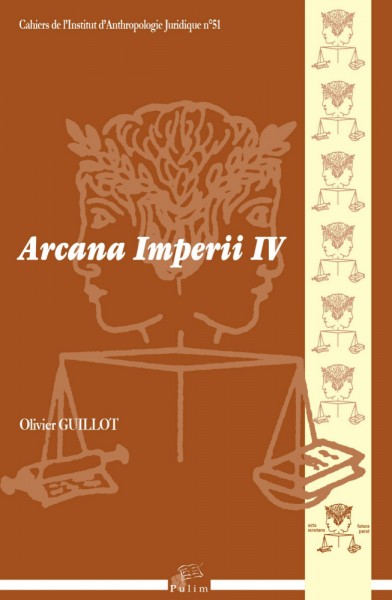AHRI
Conference 2019
Human
Rights and International Humanitarian Law:
Challenges Ahead
Challenges Ahead
–
Call for papers –
As the largest inter-disciplinary and general research
conference on human rights, the AHRI 2019 Conference (6th-7th
September 2019 in Potsdam, Germany) welcomes both individual papers and panels
exploring the themes set out below. The 70th anniversary of the Geneva
Conventions of 1949 gave rise to the leading overall theme
“Human
Rights and International Humanitarian Law:
Challenges Ahead”,
Challenges Ahead”,
but proposals do not need to be limited to that
because the AHRI research conference will be a general platform for discussing
new human rights research issues.
The six primary tracks allow to deal with a broad
variety of questions linked to the overall theme of the conference. Preference
will be given to strong proposals falling within one of the following tracks,
under which several panels will be organised.
The following list is not exhaustive, but more
illustrative in character. Additional topics or proposals are therefore
welcome. We appreciate contributions to these topics not only from a legal
perspective, but also from philosophical, political, sociological and other
viewpoints.
1. Historical Development
This track wants to make use of a historical perspective
on the two bodies of law. How did they evolve over time and influence each
other, and which actors influenced the development under which circumstances?
1) Namibia and beyond: the applicability of IHL and IHRL in colonial situations:
past, present and current repercussions
2) Cross-fertilization revisited: the history of the impact of IHRL on IHL
and vice versa
3) Actors of the historical development of IHRL and IHL compared: States,
international organizations and beyond
2. General
Questions
In this track, we welcome submissions discussing
implications on the doctrine of international law. Do we face a fragmentation
with consequences for the interpretation of the bodies of law? Or, on the
contrary, will a common framework emerge?
1) IHL and IHRL: two fundamentally divergent epistemological communities –
are we still speaking the same language?
2) Interpreting IHL and IHRL norms: do the same methods apply?
3) Extraterritorial application of human rights obligations: any limits
left?
4) Applying IHL over time: the case of long-term situations of belligerent
occupation
5) Status of forces agreements and human rights obligations of the
receiving State
6) Developing monitoring mechanisms in IHL: what lessons are to be learnt
from IHRL?
7) Legal obligations for non-state actors: can IHL and IHRL learn from each
other?
3. Institutions: Who provides substantial
interpretations of the applicable law?
Human rights bodies and courts tend to favour an
extensive interpretation of human rights and, increasingly, give
interpretations of international law from such an extended human rights
perspective. What are the consequences for IHL and the traditionally driving
forces in that area, the ICRC and States, as well as for the ICC?
1) Politicized application of IHL? – the case of the Human Rights Council
2) Issues of IHL before regional human rights courts
3) Human treaty bodies and IHL
4) Impact of IHRL on the jurisprudence of the ICC
5) ICRC and IHRL
4. Specific Situations
International and non-international armed conflicts,
as well as peace operations may threaten human rights and thus lead to specific
challenges for international human rights law. Informational warfare and cyber
activities did add a new dimension.
1) Unmanned weapons, artificial intelligence and IHRL
2) Naval blockades and social and economic rights
3) Peace-keeping operations and human rights obligations
4) Information warfare and human rights obligations
5) Cultural and religious identities during armed conflicts
5. Specific Groups and Rights
This track welcomes submissions looking at the
implications of situations of armed conflicts for vulnerable groups such as
women or children, refugees or detainees. A second focus may shed light on
specific human rights such as freedom of religion and freedom of information
that may be infringed during armed conflicts or situations of occupation.
1) Detainees in non-international armed conflicts
2) CEDAW and women in situations of armed conflict
3) CRC and children in situations of armed conflict
4) Situations of armed conflict and disappearances: what obligations do
apply under IHL and under human rights law?
5) Refugees and (internally) displaced persons in situations of armed
conflict
6) Freedom of information and the press and freedom of assembly in armed
conflict
6. Jus Post Bellum
Peace processes do not end once a peace agreement has
been signed. Post-conflict situations need specific investments in order to
achieve a lasting peace. Are there implications on the human rights of all
groups of the population? In this section, we might also deal with questions of
transitional justice.
1) Reaching peace: an inherent limitation of human rights obligations?
2) Protecting vulnerable ethnic groups and minorities in post-conflict
situations
3) Dealing with persons responsible for human rights and IHL violations: do
the same standards apply?
4) What remedies for IHL violations lessons learnt from IHRL?
Abstracts are to be submitted until 31st of
March 2019 via the following link: https://www.conftool.com/ahri2019/. Further information available at: https://www.uni-potsdam.de/ahri2019.html.












